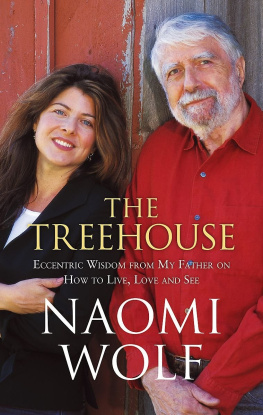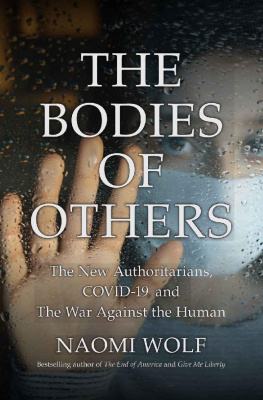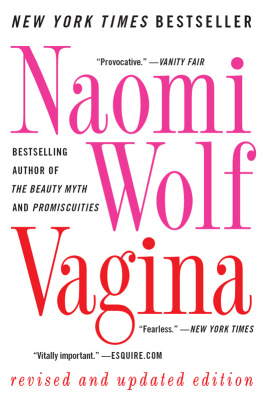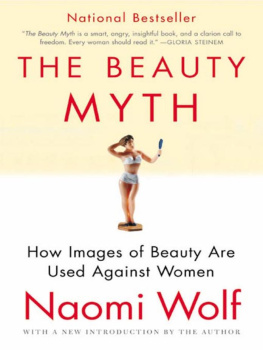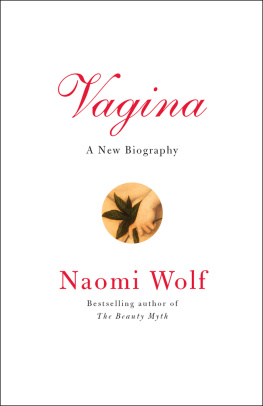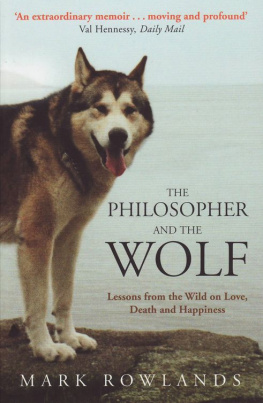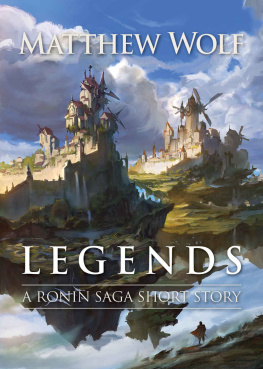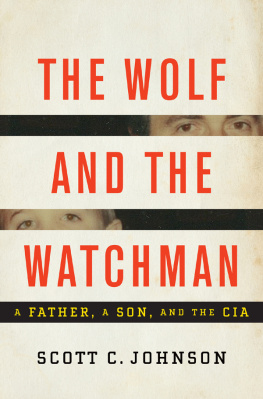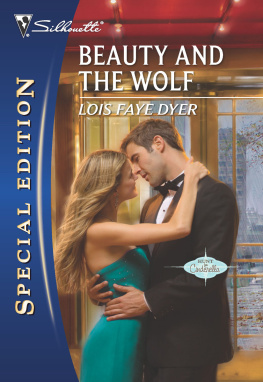Naomi Wolf - The Treehouse
Here you can read online Naomi Wolf - The Treehouse full text of the book (entire story) in english for free. Download pdf and epub, get meaning, cover and reviews about this ebook. year: 2005, genre: Detective and thriller. Description of the work, (preface) as well as reviews are available. Best literature library LitArk.com created for fans of good reading and offers a wide selection of genres:
Romance novel
Science fiction
Adventure
Detective
Science
History
Home and family
Prose
Art
Politics
Computer
Non-fiction
Religion
Business
Children
Humor
Choose a favorite category and find really read worthwhile books. Enjoy immersion in the world of imagination, feel the emotions of the characters or learn something new for yourself, make an fascinating discovery.
- Book:The Treehouse
- Author:
- Genre:
- Year:2005
- Rating:3 / 5
- Favourites:Add to favourites
- Your mark:
- 60
- 1
- 2
- 3
- 4
- 5
The Treehouse: summary, description and annotation
We offer to read an annotation, description, summary or preface (depends on what the author of the book "The Treehouse" wrote himself). If you haven't found the necessary information about the book — write in the comments, we will try to find it.
The Treehouse — read online for free the complete book (whole text) full work
Below is the text of the book, divided by pages. System saving the place of the last page read, allows you to conveniently read the book "The Treehouse" online for free, without having to search again every time where you left off. Put a bookmark, and you can go to the page where you finished reading at any time.
Font size:
Interval:
Bookmark:
Thank you for downloading this Simon & Schuster ebook.
Get a FREE ebook when you join our mailing list. Plus, get updates on new releases, deals, recommended reads, and more from Simon & Schuster. Click below to sign up and see terms and conditions.
CLICK HERE TO SIGN UP
Already a subscriber? Provide your email again so we can register this ebook and send you more of what you like to read. You will continue to receive exclusive offers in your inbox.
For teachers,
who help us climb
L EONARD WOLF, my father, is a wild old visionary poet. He believes that the hearts creative wisdom has a more important message than anything else, and that our task in life is to realize that message.
Leonard has spent a lifetime identifying his own hearts desires, and it shows in the things that surround him. He has twenty ancient typewriters. He has a kukri knife, used to behead bullocks in a single stroke. He has an elaborate filigreed toiletry set used to remove the earwax of a Persian caliph. He has driftwood in piles, and heaps of seaworn glass in bushel baskets lying around the house. He has a box of horseshoe nails because horseshoe nails are intrinsically beautiful. Those are all part of his hearts desires because they are symbols of a life of adventure and discovery.
Among the things he does not have: current maps for a given destination. Like most men, he does not wish to ask directions, so my mom, my brother, and I often find ourselves patiently biting our tongues in the backseat while he navigates by memories of foliage and lyrical years-old impressions of passing landmarks. (Can the Golden Gate Bridge be on the right ? When did that happen?) However, he happily brought home from one trip a collection of silk paratroopers maps dating from World War II, which show roads and boundaries of countries that no longer exist. He gave them out as useful gifts. The idea is that you keep the silk map handy in your breast pocket as you are parachuting into, say, Prussia, so you can find your way around once you hit the ground.
My father does not have a cell phone or a personal organizer. He is the only person in America who kept the impossible-to-remember generic e-mail address that AOL assigned him. I have been trying to explain to him the principle of compound interest for my entire adult life. He overlooks these details because they have nothing to do with what he thinks really matters.
One of his greatest treasures, one that sat proudly displayed on the bookshelf in San Francisco when we were children, is a set of medieval Arabian astrolabes. They are crusted over with what looks like recent antiquing, and are probably mass-produced. He needs them because Chaucer used an astrolabe. Most of these were bought in North African bazaars for exorbitant prices that my father, who is far from wealthy, was always glad to pay.
It makes him happier to pay more for something he can believe is a medieval astrolabe than it does to pay less for what he must then acknowledge is probably not a medieval astrolabe. The very words medieval astrolabe, and the way they flow off the tongue, add to the objects value. North African souk dealers see him coming from miles away, and when they part, they do so, after many glasses of sweetened mint tea, as the dearest of friends.
(How do you know they are not real? he wrote in a testy hand upon reading this.)
Why did Leonard accumulate a series of astrolabes? After all, he does not live on a ship: You live in Manhattan, someone might say.
Its surrounded by water, he will point out. Why, he feels, should you accept that your life will never call upon you to navigate by the stars? How sad would that be?
My dad is still a very handsome man: six feet two and distinguished-looking. He has an aquiline nose, fierce white eyebrows that seem to have lives of their own, gray-white hair that, depending on how it is brushed, makes him look either like an elderly Lord Byron seated at a formal dinner or like a homeless man having an alarming vision, and smiling hazel-brown eyes.
He is a teacher, and has taught in every kind of setting, for almost sixty years. He changes peoples lives because he believes that everyone is here on earth as an artist; to tell his particular story or sing her irreplaceable song; to leave behind a unique creative signature. He believes that your passion for this, your feelings about this, must take priority over every other reasoned demand: status, benefits, sensible practices. This book is about why he believes this, and what this belief does to the people around him. Most of all, it is about the power of the imagination.
Leonard feels that your medium may be words or music or paint; it could also be the guiding of an organization, the baking of a certain kind of cake, the edging of a garden, the envisioning of a new kind of computer network, or the gesture that brushes the hair away from the forehead of a hurt child. What matters to my father is not whether the creative work is valued in the marketplace; what matters to him is whether or not it is yours.
He wants to know you have put your emotion into it, driven your artists discipline into it, seen it through to completion and signed your name to it, if only in your own mind. If you do, he believes, your work comes alive and gives life to those around you. And it gives life, he is sure, to you.
My dad makes Xerox copies at Kinkos of the phrase Verba volant / Scripta manent Spoken words fly away, but writing remainsmeaning, get it down, do your creative work, whatever it is. He passes out the Xeroxes to everyone he thinks needs reminding: his grandchildren, his acquaintances, the guy at the cleaners.
He believes that each of us arrived here with this unique creative DNA inside us. If we are not doing that thing which is our innate mission, then, he feels, no matter how much money or status we might have, our lives will feel drained of their true color. He believes that no amount of money or recognition can compensate you if you are not doing your lifes passionate creative work; and if you are not doing it, you had better draw everything to a complete stop until you can listen deeply to your soul, identify your true hearts desire, and change direction. Its that urgent.
Leonard believes if that particular story of yours is not toldif storytelling is your mediumor if that certain song is not sungif you are meant to singand even if there is almost no one to hear it at the end, then it is not just the artist who has sustained a quiet tragedy; the world has, too.
Leonard believes that you can learn how to live from literature, from art, and that the key to leading a happy, meaningful life is to be found not primarily from the self-help section of a bookstore or from a therapists couch, but from paying careful attention to poetry, to whatever constitutes poetry for you.
All my life, I have seen how his faith in this possibilitythat an artist inheres in everyoneactually does change peoples lives: the students he has taught over the course of four decades are changed, but so are the lives of people who are simply passing through. His faith in ordinary peoples innate artistry gives him a kind of magic touch. I have seen how his belief has led people with whom he has come into casual contactfriends of mine, friends of his, strangers he meets on trains, the staff in his buildingto suddenly drop whatever is holding them back from their real creative destiny and shift course; to become happier.
When people spend time around my dad, they are always quitting their sensible jobs with good benefits to become schoolteachers, or agitators, or lutenists. I have seen students of his leave high-paying jobs that were making them miserable, or high-status social positions that had been scripted by their families, and follow their hearts in the face of every kind of opposition to become, say, dirt-poor teachers of children in the mountain villages of the Andes. Ive seen the snapshots they send back to him, of themselves with their tattered, clowning kids, their faces suffused with joy. They have found their poetry.
Font size:
Interval:
Bookmark:
Similar books «The Treehouse»
Look at similar books to The Treehouse. We have selected literature similar in name and meaning in the hope of providing readers with more options to find new, interesting, not yet read works.
Discussion, reviews of the book The Treehouse and just readers' own opinions. Leave your comments, write what you think about the work, its meaning or the main characters. Specify what exactly you liked and what you didn't like, and why you think so.

